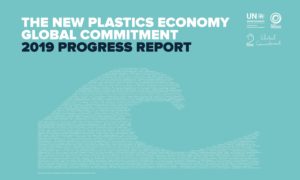We know plastic bottles are choking our planet. So why are companies still selling them?
The American Beverage Association announced on Tuesday that the world’s leading beverage companies — Coca-Cola, PepsiCo and Keurig Dr Pepper — are investing $100 million to reduce the use of new plastic and improve plastic bottle recycling across the globe.
In the 1970s we transitioned to plastics from glass bottles under the deposit system. PET (polyethylene terephthalate) was patented in 1973, a plastic that was strong enough to keep carbonated drinks contained without the weight of glass – making it cheaper to ship with a lower risk of breaking.
In 1969, Coca-Cola commissioned a life-cycle analysis comparing it to glass. The study ran the gamut, looking at water pollution, emissions, energy expenditure and more.
The investigators later reproduced it for the U.S. Environmental Protection Agency in 1974. Their conclusion was that no throwaway container would match or surpass the 10-trip returnable glass bottle “in the near future.”
Coca-Cola went ahead with the new plastic bottles, anyway. The rest is history.
Sara Wingstrand, new plastics economy project manager at the Ellen MacArthur Foundation, a U.K.-based environmental charity, says plastic bottles present the same problem as the rest of the plastic packaging system: There is no value in keeping them in circulation.
“We don’t value the plastic bottle,” she said. “We don’t keep it and nobody really wants it.”
Bart Elmore, associate professor at Ohio State University’s department of history and author of Citizen Coke, said that back in the day, when pop cost five cents a bottle, the deposit was between one and two cents.
“That’s like a 40 per cent mark-up,” he said. “Of course you’re going to bring back the containers. So we know it works.”
While some are calling for a return to glass, that’s an unlikely solution due to the increase in shipping costs that international beverage companies would have to swallow.
And recycling glass has its own challenges, Elmore said.
“The issue is it’s a lot of energy to heat it up to reclaim it, a lot more than aluminum, which is actually very efficient to recycle.”
Read the full and original article at CBCNews.ca



